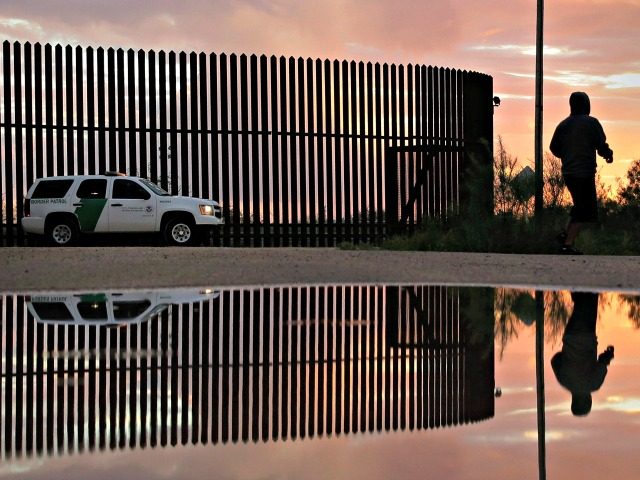The national discussion and debate over a “border wall” can be confusing due to a number of factors; namely, anti-border barrier politicians use blanket statements and assertions that are inaccurate if applied to the entire U.S.-Mexico border region.
1. Talking about “the wall” or “a wall” when even Trump acknowledges that the reality is “portions of a wall” will be built.
Whether it is Texas Representative Will Hurd continuously talking about the ineffectiveness of a wall from sea to shining sea, or President Trump himself continuously talking about “the wall,” leaders with platforms do a disservice to the public with such terms and phrases. President Trump has continuously asserted that only portions of physical barriers are needed on the U.S.-Mexico border. No one is actually attempting to build a wall from “sea to shining sea.”
2. Talking about “the border” as though it is one monolithic region with similar needs and circumstances across the entire nine U.S. border sectors.
Texas Representative Beto O’Rourke has asserted that “the border is safe,” even if though this is an untrue assertion when applied to the entire border. Anyone who has comprehensive knowledge about the nine sectors of the southwest border knows that some areas are safe and many are not. Texas Representative Will Hurd also falls into this trap frequently. His district contains nearly 800 miles of Texas border, most of these 800 miles are remote and technology would work fine –in most of his district. A large portion of his district has sheer cliffs, therefore already possessing the physical barriers needed to have a more secure border and other areas have fencing that amount to a de facto wall. The remoteness of much of his district means that U.S. authorities would have a long time to hunt down border-crossers before they reached a U.S. community. This is simply not the case with other areas along the U.S.-Mexico border. Representative Hurd does a disservice by not acknowledging that some areas along the border actually do need physical barriers and that those areas are nothing like his district.
3. Giving puff tours of more secure sections of the border and portraying that more secure areas are representative of the border as a whole.
Again, we go to Texas Representative Hurd. He routinely gives “bipartisan” border tours. Sadly, he brings his guests to El Paso, Texas. This city already has heavy border security and a Trumpian fencing system that is a de facto wall. By taking people to one of the cities on the border with the most border security, it gives the false impression that the security measures are somehow representative of the border as a whole. This is why then-President Barack Obama visited El Paso and used it to dupe the public on border security. He insisted that Americans look how secure “the border” was and then mocked anyone wanting more security by asking if they needed to see alligators and a moat to finally be satisfied.
Representative Hurd has great ideas on securing portions of the border, unfortunately he does not clarify that his ideas are insufficient when applied to the border as a whole. A de facto wall has worked well in his district’s El Paso and Americans in other urban areas along the border deserve the same security his constituents receive — security they are less likely to receive if the congressman does not begin to offer more facts in his public advocacy against physical barriers along the border.
Brandon Darby is managing director and editor-in-chief of Breitbart Texas. He co-founded the Cartel Chronicles project with Ildefonso Ortiz and Stephen K. Bannon. Follow him on Twitter and Facebook. He can be contacted at bdarby@breitbart.com.
Ildefonso Ortiz is an award-winning journalist with Breitbart Texas. He co-founded the Cartel Chronicles project with Brandon Darby and Stephen K. Bannon. You can follow him on Twitter and on Facebook.

COMMENTS
Please let us know if you're having issues with commenting.